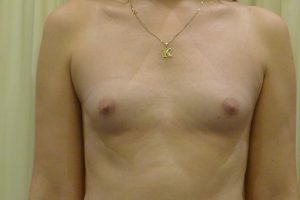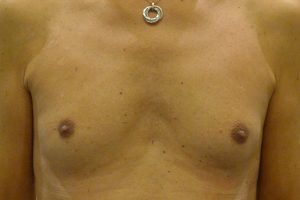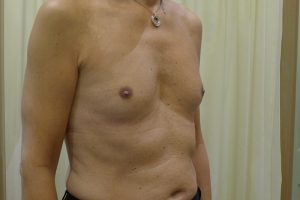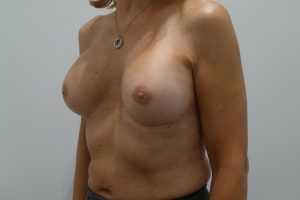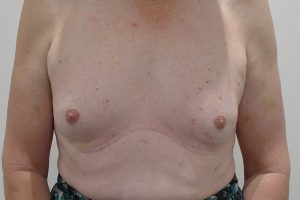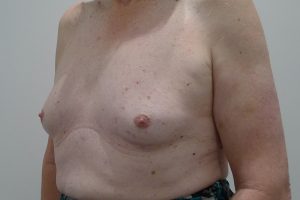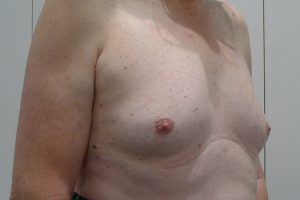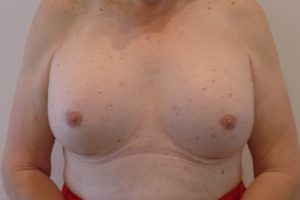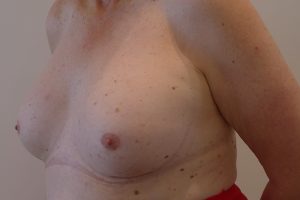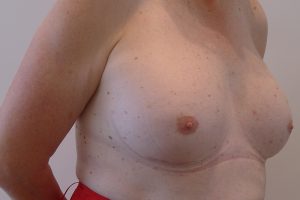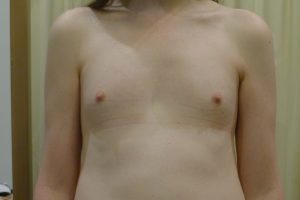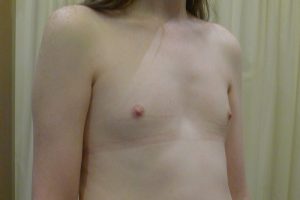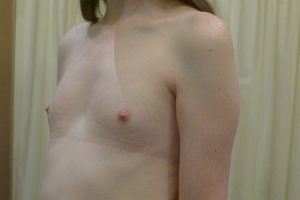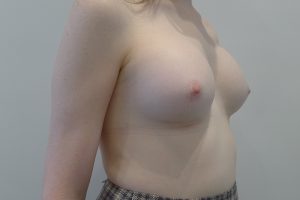Breast Augmentation
Mr Andrew Ives believes breast surgery is about what you want to achieve. There’s no pressure to conform to a one-size-fits-all solution; each procedure is tailored to give the result you desire.
Having a breast shape and size that you feel comfortable with can play a significant role in your confidence. The impacts can be both physical and emotional: you may dislike the way you look, experience physical discomfort, struggle to find clothes that fit, or feel less feminine and sensual. For women who have had one or both breasts removed, there may also be a feeling of loss.
Whether you are seeking breast surgery in Melbourne for reconstructive purposes after a mastectomy, to reduce discomfort related to size, or to enhance your existing shape, Mr Ives and his team will ensure you are treated in a sensitive and professional manner. They understand that breast surgery is a highly personal procedure and their goal is to make you feel as comfortable as possible during consultations, surgery and post-surgical appointments.
Breast Augmentation Patient 1
Pre-operative
Post-operative
Breast Augmentation Patient 2
Pre-operative
Post-operative
Breast Augmentation Patient 3
Pre-operative
Post-operative
Breast Augmentation Patient 4
Pre-operative
Post-operative
Consultations
Consultations are held in a relaxed and professional atmosphere. Because of the personal nature of breast surgery, some patients feel concerned about having their breasts examined. Although you may feel this way, an examination is necessary to assess the size, shape and structure of your breasts so that Mr Ives can determine the most suitable solution for your situation. Mr Ives has extensive experience dealing with breast surgery, and your examinations will always be conducted respectfully.
After Surgery
For information on post-surgery care, please visit Planning Your Treatment
Breast Enlargement
What it does:
Enhances breast volume and shape by inserting an implant over or under the pectoral muscle. The end result can be tailored to each patient by using different implant materials and shapes.
Why patients consider it:
Dissatisfaction with breast size; feeling ‘out of proportion’; loss of breast volume after pregnancy, breastfeeding or weight loss.
Choosing a size:
Good breast surgery is designed to give you the most natural appearance, with breasts that suit the size of your body. Breast enlargement procedures that give patients breasts disproportionately large for their body not only don’t look natural, but can also lead to complications and extensive surgery later in life, leaving heavy scarring. The ultimate size of the enlarged breast is determined by the patient’s chest width. This is measured during consultation, and a sizing kit is then used to indicate final size.
Complementary procedures:
Breast enlargement will not correct significant drooping or sagging breasts. In this case, a breast lift may be recommended instead of, or as well as breast enlargement,
Risks and complications:
All surgery involves a degree of risk and possible complications. Please take the time to review the risks and complications associated with breast enlargement.
Frequently Asked Questions
During your consultation with Mr Ives, you will be asked about your past medical history and your general health. You will also be asked about your journey to date, including if and when you started your hormone therapy.
Mr Ives will then examine your chest looking for lumps or abnormalities. Skin quality and tissue volume will assessed and any asymmetries noted. Some measurements of your chest will also be taken.
Mr Ives will then discuss with you the options concerning breast augmentation, including the type and shape of implant, the incision site and the position the implant will be placed (in front of, or behind the pectoralis major muscle). He will also discuss the postoperative regime, as well as the potential complications of surgery.
If you are one of our many patients from interstate, Mr Ives will take some photographs as part of your medical record at the initial consultation. A second consultation will be arranged. If you are one of our interstate patients this can be done over the phone..
At the second consultation, Mr Ives will re-discuss the operation and the risks of surgery with you. IHe will discuss the surgical options again with you to confirm type of implant, incision site and placement position of the implant. He will also use a sizing kit to help determine the best size of implant to achieve your goals. If he has not already done so, Mr Ives will take some photographs of your chest as part of your medical record.
You can book surgery for whenever. However, Mr Ives will not perform the surgery without the WPATH criteria being met and having the relevant report(s). See "WPATH criteria"
Breast tissue does not respond to hormones overnight!
Like natal females, breasts take time to grow and develop. Because of this, and as per the WPATH recommendations, Mr Ives recommends you undergo at least 12 months of continual hormone therapy before considering surgery. If after this time your breasts are still growing, he will recommend that you desist from surgery until your breast growth has ceased and not altered for at least 3-6 months.
Implants come in two shapes – round and anatomical (also known as teardrop). You can discuss with Mr Ives your preference, or if you are not sure, he will discuss with you the advantages and disadvantages of both types of implants for your individual case.
Implants can be placed either behind breast tissue in front of the chest wall muscles (also known as pre-pectoral) or behind the chest muscles (sub-pectoral). You may have a preference for placement, alternatively Mr Ives will discuss both of these positions with you and the advantages and disadvantages of both of these in your individual circumstance.
Mr Ives performs surgery at Masada Hospital in East St Kilda and also at The Windsor Private Hospital in Windsor. Both of these hospital are accredited.
Any operation has risks associated with it. Mr Ives will discuss these with you during the consultation.
Complications from surgery can be divided into ‘General Complications’ that you can get from this or any other operation, and ‘Specific Complications’ that are specific to the operation itself.
General complications include:
- Infection
- Keloids (lumpy scars)
- Deep Vein Thrombosis (DVT) – clots in the legs
- Haematoma (collection of blood in the wound)
- Anaesthetic complications
Specific complications include:
- Capsule Contracture
- Rotation / Movement of implant
- Rupture
- Asymmetry
- Sensory alteration/loss – nipple/skin
- Risk of BIA-ALCL
- Need for secondary surgery
Mr Ives will discuss with you the risks of surgery during your initial consultation.
Mr Ives performs this procedure under general anaeasthesia as a day procedure.
Most patients can resume daily activities after about about 5 days. It will depend however on whether the implants are placed in front of, or behind the chest muscles. Also more strenuous work will require a longer period of time off work. Mr Ives will discuss this with you at your initial consultation.
If you are from interstate, you should be plan on being in Melbourne for about a week
If you have any other questions about the procedure, please feel free to contact the rooms and we will be happy to get back you.

